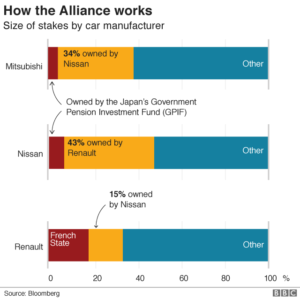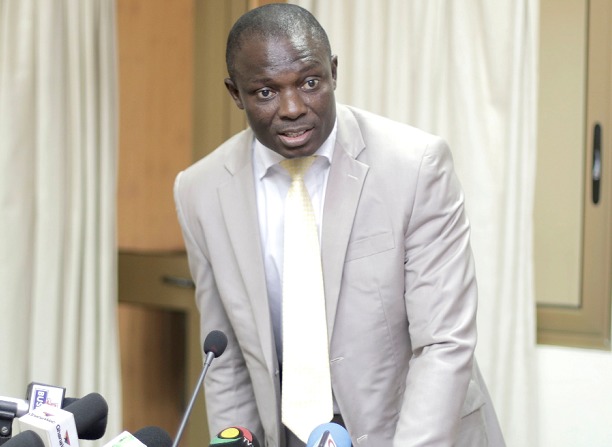Carlos Ghosn has been sacked as chairman of Mitsubishi Motors after his arrest in Japan over misconduct claims.
It follows a similar move by Nissan last week amid claims he falsely understated his salary and used company money for personal gain.
Mr Ghosn, who headed an alliance of Renault, Nissan and Mitsubishi, has denied the allegations, according to media reports in Japan.
He remains in detention and has not spoken publicly about the affair.
Mitsubishi said that “Ghosn has lost the confidence of Nissan” and it is “difficult for him to fulfill his duties” at Mitsubishi. Nissan holds a 34% stake in Mitsubishi, but has effective control of the company.
Brazil-born Mr Ghosn, aged 64, was the architect of the Renault-Nissan alliance, and brought Mitsubishi on board in 2016.
He was credited with helping to stabilise the company after it was rocked by a scandal in 2016 involving over-stating fuel efficiency of some Mitsubishi cars.
But Mitsubishi’s chief executive Osamu Masuko told reporters after a board meeting to decide Mr Ghosn’s fate: “We (have) had two years of the alliance and there were positive parts… and parts that needed to be revised a little from Mitsubishi Motors’ point of view,”
Denial
On Sunday, Japan’s public broadcaster NHK, which first disclosed last week’s arrest and detention of Mr Ghosn, said the businessman had told investigators he denied claims.
Greg Kelly, a former Nissan executive arrested along with Mr Ghosn, was quoted by NHK as defending his boss’s compensation, saying it was discussed with other officials and paid out appropriately.
Japanese prosecutors claim the two men conspired to understate Mr Ghosn’s remuneration by about half the 10 billion yen ($88m; £68m) he earned at Nissan over five years from 2010.
Company money is also alleged to have been used to buy property. He has not been formally charged.
The board of Nissan decided unanimously on Thursday to oust Mr Ghosn as chairman, a spectacular fall from grace for the dynamic businessman credited with turning around the firm’s once-flagging fortunes by tying its fate to Renault.
The executives made their decision “based on the copious amount and compelling nature of the evidence of misconduct presented,” said a company spokesman.
Nissan formed a “secret” team earlier this year to look into alleged financial misconduct by Mr Ghosn, who had been hailed a hero in Japan for reviving Nissan.
‘No conspiracy’
But there are suspicions about the timing of Mr Ghosn’s downfall, which came amid concerns about the future of the Renault-Nissan partnership
He is thought to have been planning deeper business ties between the carmakers, something that some Nissan executives feared could see their company reduced to a junior partner.

On Monday, Nissan’s chief executive has told staff of his “shock” at the allegations against Mr Ghosn.
At a 45-minute meeting attended by hundreds of staff at the firm’s Yokohama headquarters and broadcast internally to other sites, Hiroto Saikawa stressed that day-to-day operations should not be affected by the scandal.
According to a report by the AFP news agency, Mr Saikawa told staff that power was too concentrated with Mr Ghosn.
He told them the changes meant there would be better communication between alliance board members and executives, AFP reported.
France’s economy minister Bruno Le Maire has urged Nissan to share “quickly” whatever evidence it has gathered and stressed Mr Ghosn will stay at the helm of Renault “until there are tangible charges”.
However, Mr Le Maire also told French media on Sunday that “I do not believe in a conspiracy theory” amid the talk of a so-called “palace coup” to take more control of Nissan.
The three companies are bound together by cross-shareholdings that could be complicated to unpick. Renault has appointed an executive to take charge of Renault on a “temporary basis”.
Executives of the three companies are thought to be planning a meeting this week, their first gathering since Mr Ghosn’s arrest.
The meeting was due to be held in the Netherlands with a video conference available for executives who cannot attend, Japan’s Yomiuri Shimbun newspaper reported.
Credit: BBC



